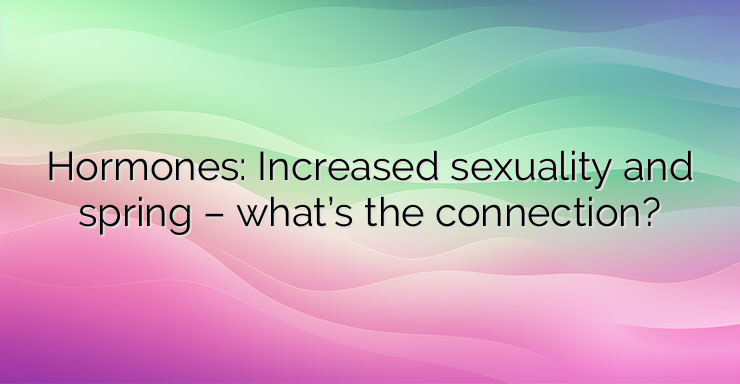With the arrival of spring, most people’s mood and outlook improve significantly compared to the long, dreary winter. Everything from the desire to walk in the sun, listening to loud music and increased energy levels to the noticeable increase in interest in sexual intercourse is a result of the increased amount of sunlight and rising levels of serotonin and luteinizing hormone. In winter, people release more melatonin, a neuro-hormone with a relaxing and sleep-inducing effect. It is synthesized by the pineal gland during prolonged deprivation of daylight. As the periods of sunlight lengthen, the pineal gland slows down the production of melatonin at the expense of increased production of serotonin, a neurotransmitter and hormone that carries powerful positive effects throughout the body. Thanks to serotonin effects, winter lethargy is slowly being replaced by energy and a desire for action and change. Instead of depression and inactivity, serotonin stimulates joyful thoughts and physical activity. At this moment, the luteinizing hormone is also activated. Synthesized by the pituitary gland, this hormone stimulates ovulation and progesterone production in women and testosterone production in men. It is also affected by sunlight levels and rises almost in parallel with the amounts of serotonin released. NEWS_MORE_BOX The direct effect in both sexes is similar – happy thoughts and increased energy can suddenly escalate into sexual thoughts and urges, leading to an additional release of serotonin, adrenaline, sex hormones and endorphins. In addition to the predisposition to sexual fantasies and the stimulation to find a sexual partner, the increased amount of sex hormones further enhances brain function. Testosterone, for example, greatly improves the abilities of concentration, memory and spatial orientation, and progesterone affects specific GABA receptors to achieve effects similar to euphoria and protect the brain from neurochemical disturbances associated with states of anxiety and depression.


Leave a Reply